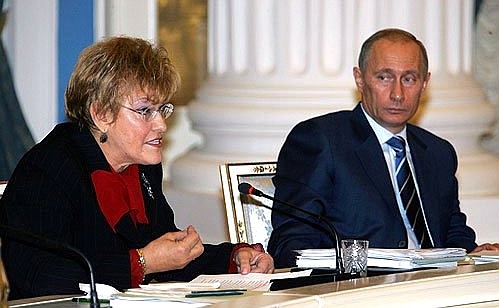
Under the President's auspices, a session of the Council for Science, Technology and Education analysed the process of modernization taking place in the whole educational sphere. According to Vladimir Putin this modernization is proceeding slowly and with difficulties. The large-scale national education project will act as an additional impulse for modernization. The President declared that its implementation has begun and that all financial and organizational measures allocated to this effect will be closely followed and supervised by the government.
The head of state pointed out that already in the near future the government should make decisions regarding obligatory full secondary schooling, and regarding fundamentally changing the quality of work done by the average graduate and all professional educational institutions. According to Vladimir Putin, the quality of education is the number one problem. To improve this, one needs not only good material and educational resources but teachers must also have commendable living and working conditions. Along with this teachers must update their teaching approaches and introduce modern educational technologies.
Regarding the most important tasks of today's 'knowledge economy', the President also wants to support people's demands for increases in the level of education provided, integrating professional formation with manufacturing, and integrating the Russian educational system into international education systems. The President suggested putting questions relating to education on the agenda of the G8 summit that will take place in 2006 and in which Russia, the host country, has a key organizational role. The President also drew attention to the fact that it is necessary to more actively promote educational services and technologies in the markets of other countries, first of all in the states of the CIS.
The President supported the idea of forming a National Council of young academics, teachers and graduates.